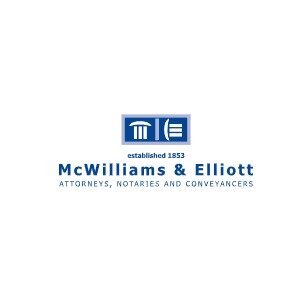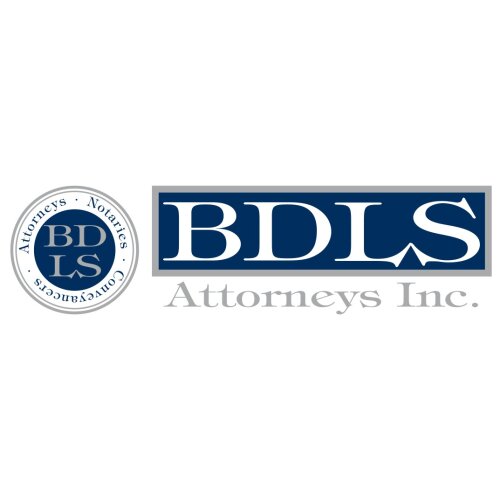Best Tax Increment Financing Lawyers in Port Elizabeth
Share your needs with us, get contacted by law firms.
Free. Takes 2 min.
List of the best lawyers in Port Elizabeth, South Africa
About Tax Increment Financing Law in Port Elizabeth, South Africa
Tax Increment Financing (TIF) is a public financing method that is used to subsidize community improvement projects and stimulate economic development in designated areas. In Port Elizabeth, South Africa, TIF is employed to facilitate urban development by using the expected future increase in property tax revenues to fund current improvements. This method helps improve infrastructure, redevelop blighted areas, and boost economic growth without imposing new taxes on the local community. By capturing the incremental tax increase resulting from higher property values, TIF provides a feasible solution for financing projects that might not otherwise have sufficient funding.
Why You May Need a Lawyer
Engaging legal expertise is often crucial in the field of Tax Increment Financing due to the complexity and specificity of the laws and regulations involved. Some common situations where you might require legal assistance include:
- Understanding compliance and regulatory requirements for a TIF project.
- Negotiating TIF agreements or contracts with local governments or private developers.
- Assessing potential legal risks associated with TIF-funded projects.
- Resolving disputes that may arise during the course of a TIF project implementation.
- Strategizing on the best structure for financing and managing a TIF project.
Local Laws Overview
In Port Elizabeth, the framework for Tax Increment Financing is governed by local municipal policies, which align with national development goals. Key aspects include:
- Designation of TIF districts: Areas must be officially designated for TIF purposes based on criteria such as economic need and potential for development impact.
- Project eligibility: Only certain types of projects, such as infrastructure improvements and economic development initiatives, qualify for TIF funding.
- Revenue use: Incremental tax revenues are restricted for use within the TIF district to promote accountability and project success.
- Reporting and transparency: Regular reporting on the financial performance and outcomes of TIF projects to ensure transparency and accountability.
- Community involvement: Public participation and stakeholder engagement are often required in the planning and implementation of TIF projects to align with community interests.
Frequently Asked Questions
What is the primary benefit of using TIF in Port Elizabeth?
TIF is primarily used to revitalize underdeveloped or economically distressed areas by financing public improvements that spur private investment without increasing taxes on existing residents.
How does TIF affect property taxes in the area?
TIF does not increase property tax rates. Instead, it captures the future incremental tax revenues that result from the increased property values due to development.
Can any area be declared as a TIF district?
No, an area must meet specific criteria, such as the potential for redevelopment and improvement, to be designated as a TIF district by municipal authorities.
Who decides which projects receive TIF funding?
Local government bodies, often in coordination with economic development associations and with public input, decide which projects will receive TIF funding based on their potential impact and alignment with development goals.
Are there risks associated with TIF projects?
Yes, risks can include the potential for projects to underperform, resulting in lower than anticipated revenue, or legal challenges regarding the allocation and use of funds.
What responsibilities do developers have in TIF projects?
Developers are usually responsible for meeting specific project benchmarks and objectives, adhering to compliance, and ensuring the efficient use of funds as outlined in the TIF agreement.
Is public approval required for TIF projects?
Public engagement is often a component of TIF project planning, and in some cases, public approval through consultative processes is required to ensure community support.
What happens if a TIF project fails to meet its goals?
If a TIF project fails, it may lead to financial shortfalls, impacting the intended benefits. Legal and financial reviews will be needed to address any failures in meeting objectives.
How long does a TIF district last?
The duration of a TIF district varies, commonly lasting between 15 to 25 years, or until the project has funded itself through the increased tax revenues generated.
Can TIF be combined with other financing methods?
Yes, TIF is often used in conjunction with other public and private financing mechanisms to maximize the funding and impact of a redevelopment project.
Additional Resources
For those seeking more information or assistance related to Tax Increment Financing in Port Elizabeth, the following resources can be beneficial:
- Municipal Development Departments: For guidance on local policies and project approvals.
- Legal Aid South Africa: Offering legal advice and support for those eligible.
- Eastern Cape Development Corporation: For information on economic development initiatives.
- Local Chambers of Commerce: Providing insights and networking opportunities in urban development.
Next Steps
If you find yourself in need of legal assistance regarding Tax Increment Financing, consider taking the following steps:
- Conduct preliminary research to understand your specific needs and challenges.
- Consult with a lawyer who specializes in tax and finance law to explore your options.
- Engage with local government offices to gather insights on regulatory requirements and compliance.
- Visit community meetings or public consultations related to TIF projects to stay informed and involved.
- Document any agreements and communications meticulously for future reference.
Lawzana helps you find the best lawyers and law firms in Port Elizabeth through a curated and pre-screened list of qualified legal professionals. Our platform offers rankings and detailed profiles of attorneys and law firms, allowing you to compare based on practice areas, including Tax Increment Financing, experience, and client feedback.
Each profile includes a description of the firm's areas of practice, client reviews, team members and partners, year of establishment, spoken languages, office locations, contact information, social media presence, and any published articles or resources. Most firms on our platform speak English and are experienced in both local and international legal matters.
Get a quote from top-rated law firms in Port Elizabeth, South Africa — quickly, securely, and without unnecessary hassle.
Disclaimer:
The information provided on this page is for general informational purposes only and does not constitute legal advice. While we strive to ensure the accuracy and relevance of the content, legal information may change over time, and interpretations of the law can vary. You should always consult with a qualified legal professional for advice specific to your situation.
We disclaim all liability for actions taken or not taken based on the content of this page. If you believe any information is incorrect or outdated, please contact us, and we will review and update it where appropriate.










